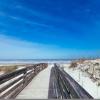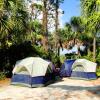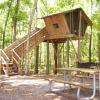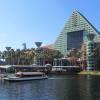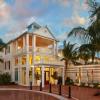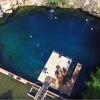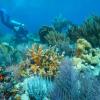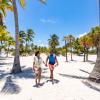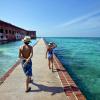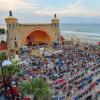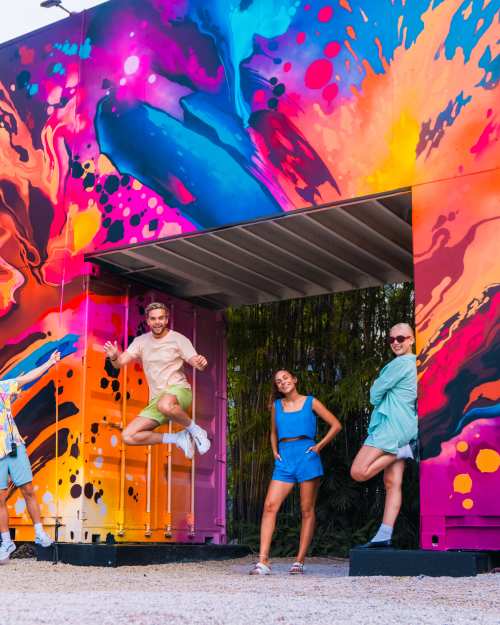A Guide to Must-See Cuban Culture in Florida
Florida's Cuban influence is seen throughout the state. These are some must-see sites to explore Cuban cultural expressions.
By Chelle Koster Walton
Way before the sensationalized Mariel boat lift made "Cuban" synonymous with Miami, the Spanish Caribbean island and Florida had sealed a bond. By dint of close proximity, trade between the two was happening well before Europeans arrived.
Later, Florida fishermen swapped smoked fish for rum during Prohibition days and when trouble struck in 1868, Cubans grabbed their tobacco seeds and headed to Key West, 90 miles away. In 1886, Vicente Martinez Ybor moved his cigar-making operation to Ybor City in Tampa, attracted by better trade deals and transportation. Today the Cuban influence has added spark to cuisine, arts and customs throughout the state. Here are some great places to trace this strong Cuban influence on Florida culture.
NORTH FLORIDA
Monument to Father Félix Varela, St. Augustine
On the lawn of today's Cathedral, this monument honors a hero and saint in the eyes of the Cuban people. An important advocate for human rights, he lived as a child in St. Augustine and also retired and died here.
Varela Chapel in Tolomato Cemetery, St. Augustine
Here Father Varela was laid to rest in 1853, but later his remains were returned to Cuba, where he was proclaimed a national hero. Cuban patriot José Marti once visited the site.
Plaza de la Constitución, St. Augustine
The bond between Cuba and St. Augustine was created when Spain traded colonial Florida with England in exchange for Cuba. As a result, Spanish citizens fled to Cuba. Some returned 20 years later when Spain regained Florida. The bond remains strong and Cubans and Spaniards alike come to St. Augustine to trace their heritage and property titles. The city’s Plaza de la Constitucion was once the site of a major rally for Cuban independence. Over the centuries, several renditions of St. Augustine’s cathedral, including the present cathedral built in 1797, have bordered the plaza.
CENTRAL FLORIDA
Fiesta Day, Tampa
Varied festivities welcome revelers to February's Cuban street fair.
Museum of Arts and Sciences, Daytona Beach
Its permanent collection contains rare pieces from the 18th to early 20th centuries organized to illustrate Cuba's past.
Parque Amigos de Jose Marti, Tampa.
This small plot of land memorializes the Cuban revolutionary's frequent exiles to Ybor City.
Ybor City Museum State Park, Tampa
Ybor City grew up around the cigar industry as a Latin district of Cubans and other nationalities. Cigars and Cuban food still figure into the culture of this historic area. Its museum flashes back to the industry's ups and downs and broad influence on the city. It includes a cigar worker's casita you can tour.
Columbia Restaurant, Tampa
Opened in 1905, this flagship of a Florida-wide chain is worth a visit for its architecture and authentic cuisine. The shop next door sells hand-rolled cigars.
SOUTH FLORIDA
Calle Ocho, Miami
Mainline of Miami's Little Havana, Calle Ocho (Eighth Street) exudes a festive air any time of day. By morning, it gets pumped up on the café con leche dispensed from bakeries and restaurants through sidewalk windows. Salsa music issues from unseen sources, everyone is chattering in Spanish and delicious aromas embody a homeland not forgotten. Stars inset along the sidewalk honor Latino celebrities and shops sell religious icons, guayabera shirts and domino tables.
Carnaval Miami
Every March a week-long showcase of Cuban festival arts culminates in Calle Ocho Festival, the nation's largest street festival.
Freedom Tower, Miami
A symbol of the saving grace America offered Cubans from 1962 - 1974 as an immigration processing center, it was rescued in the 90s itself as a monument and museum commemorating the flee from Castro and life in Old Cuba.
Maximo Gomez Park, Miami
Home to the slap-happy Domino Club, it has made many movie cameos. This Old World portrait of Cuban tradition isnhaloed in a cloud of cigar smoke occupying a small corner of Calle Ocho.
Versailles Restaurant & Bakery, Miami
The food in this landmark restaurant is genuine Cuban, without the nouveau influence that has created the Floribbean sensation.
MORE CUBAN CULTURE
Miami Destinations for Cuban History and Culture
Authentic Cuban Sandwich Restaurants in Tampa and Miami
6 Cuban Dishes You Have to Try in Florida
Explore the Florida Cuban Heritage Trail, from Tampa to Miami

